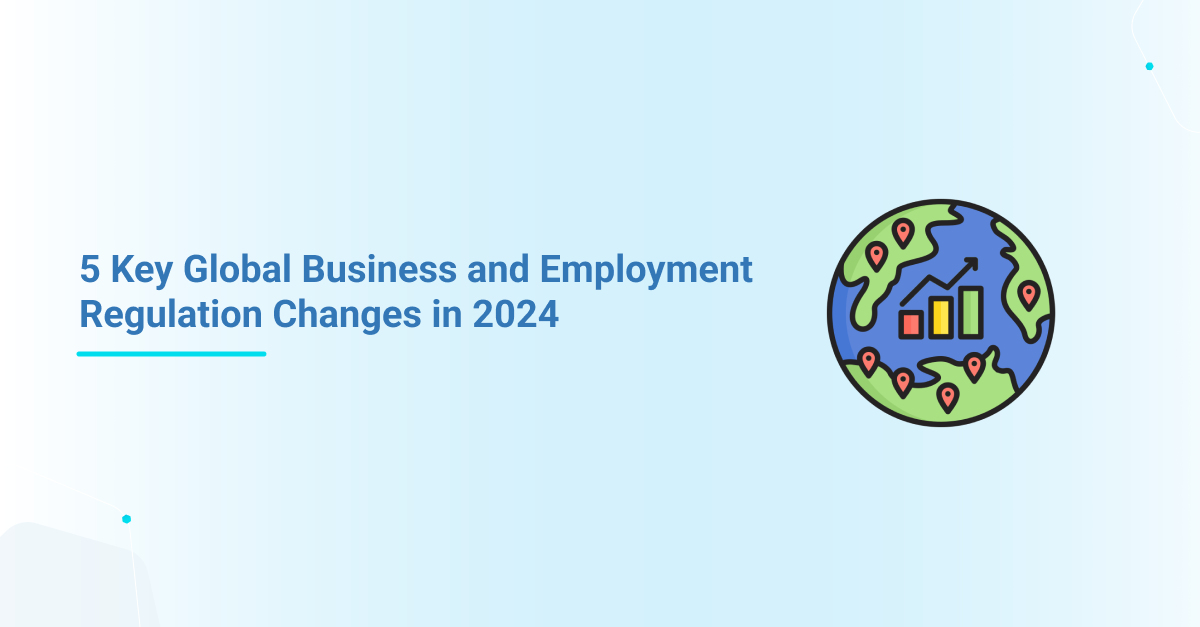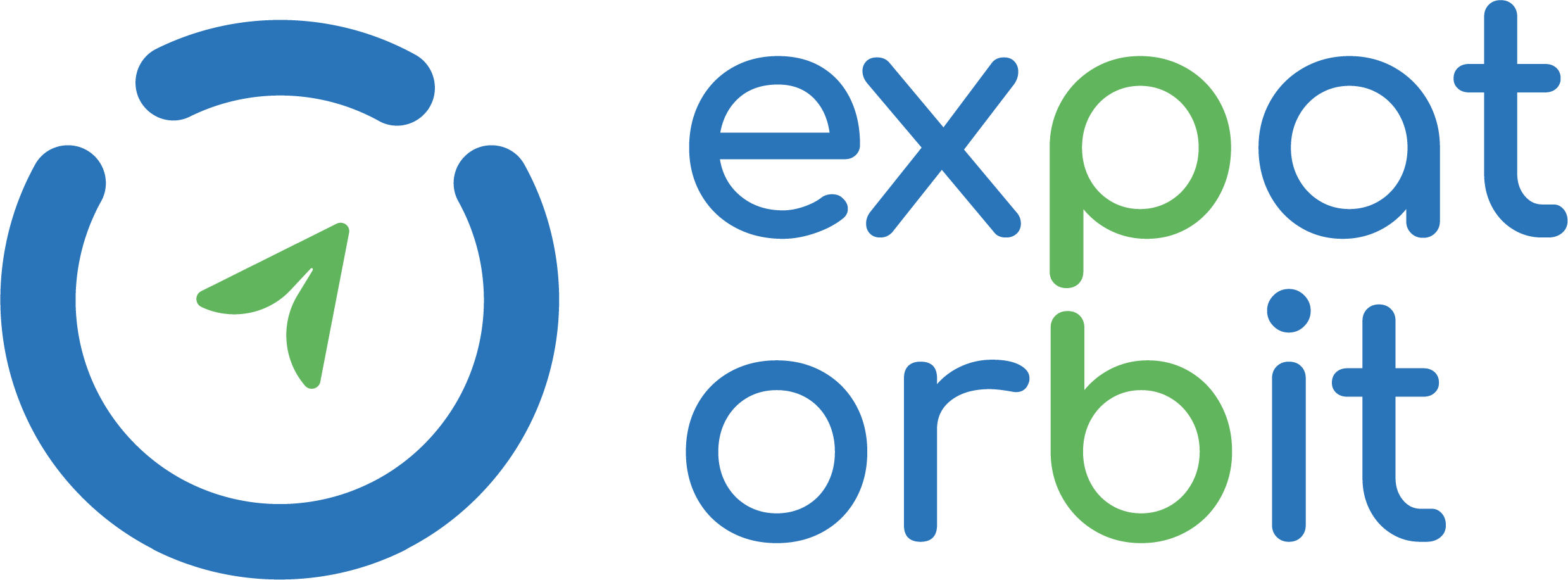5 Key Global Business and Employment Regulation Changes in 2024

Hello and welcome to 2024!
The year arrives not just with the clinking of New Year's glasses but also with a number of regulatory shifts around the world.
In each country, we encounter a new chapter of legislative changes, each distinct and demanding our attention.
What’s important to understand is- these are not just amendments and clauses in law books; they have pivotal impact in our global business strategy.
We’re here with key highlights for January 2024, offering nuggets of wisdom and strategies to ensure your business not only complies with these new norms but thrives. Let’s dive in!
United States: Corporate Transparency Act (CTA)
Key Change: Effective January 1, 2024, the CTA requires many companies to report information about their ultimate owners and controllers to the U.S. government. This initiative is part of a broader effort to enhance transparency and combat financial crimes. Non-compliance carries steep consequences, including fines up to USD 10,000 and potential imprisonment for up to 2 years. This underscores the importance of rigorous compliance protocols and corporate governance to avoid severe penalties.
Impact: The introduction of the CTA in the U.S. means that companies expanding into the U.S. or using employer of record (EOR) services for setting up remote practices must adapt to these new reporting. EOR providers with local U.S. expertise will be invaluable in ensuring that companies meet the new reporting requirements for ultimate owners and controllers. This local insight will help avoid the severe penalties of non-compliance, including significant fines and possible imprisonment, and ensure smooth business operations.
Singapore: CPF Contribution and GST Rate Changes
Key Change: From January 2024, CPF contribution rates for employees aged 55 to 70 will increase, strengthening retirement adequacy. For instance, for those aged 55 to 60, employer and employee contribution rates rise to 15% and 16%, respectively. Additionally, the monthly salary ceiling for CPF contributions will increase, and the GST rate will rise from 8% to 9%.
Impact: The increased CPF contributions and GST rates in Singapore directly impact payroll and operational costs for businesses employing senior workers or operating in the region. Companies seconding expats to Singapore or utilizing EOR services for remote teams will need to factor these increased costs into their financial planning. An EOR provider with in-depth knowledge of Singapore's taxation and social security landscape can assist in effective budget management and compliance with these new financial obligations.
Ireland: Expansion of Employer-Paid Statutory Sick Leave
Key Change: The entitlement for employer-paid statutory sick leave in Ireland will increase from three days to five days, effective from January 2024. This is part of a gradual plan to extend sick leave entitlement to ten days by 2026.
Impact: The expansion of employer-paid statutory sick leave in Ireland necessitates adjustments in HR policies and budget allocations for companies employing remote workers in Ireland. An EOR provider well-versed in Irish employment law can guide these policy updates, ensuring both compliance and employee welfare.
South Korea: Increase in Minimum Wage
Key Change: South Korea has raised its minimum hourly wage by 2.5% to 9,860 won, starting in January 2024.
Impact: This increase affects labor costs, particularly for businesses employing large numbers of minimum-wage workers. Companies considering remote expansion or using EOR services need to reassess their wage structures and budgeting in line with these changes. An EOR provider with local Korean market knowledge and expertise in compensation structuring can help businesses navigate these wage adjustments, ensuring compliance and operational efficiency.
Malaysia: Introduction of the Digital Arrival Card (MDAC)
Key Change: Effective January 1, 2024, most foreign nationals entering Malaysia must complete the MDAC online at least three days before arrival. Exceptions include Singaporeans, long-term pass holders in Malaysia, and several other categories.
Impact: For companies with foreign talent, this new requirement adds another layer to the mobility and travel planning process. Ensuring timely completion of the MDAC is crucial to avoid disruptions in employee mobility and project timelines. Even for cases where a third-party organisation is sponsoring the visa (like an employer of record), staying up to date with these travel-related regulations is crucial.
And there we have it – a whirlwind tour of 2024's regulatory landscape!
It’s evident that these changes are more than mere checkboxes for compliance; they significantly influence the planning of your global business strategy.
For those considering remote team expansion or leveraging EOR services, the key lies in mastering the local dialects of legal and regulatory language.
Collaborating with an EOR provider like Expat Orbit, armed with deep knowledge of these local terrains, can offer a substantial competitive advantage. They can guide you through the intricacies of compliance, provide fiscal foresight, assist in HR strategy development, and support employee mobility.
Let's embrace these changes with agility and foresight, setting the stage for a prosperous and compliant 2024.

